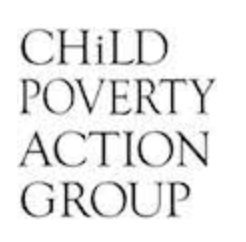
Child Poverty Action Group (CPAG) welcomes Breaking the Link Between Disability and Child and Whanau Poverty a new article by Sam Murray of CCS Disability Action highlighting the inequities that exist among whānau with experiences of disability.
Building on existing work, including that by CPAG such as It shouldn’t be this hard: Children, disability and poverty (Donna Wynd, 2015), and Barriers to support: Uptake of the Child Disability Allowance in Otara (Jessica Suri and Alan Johnson, 2016), the article brings attention to the increased likelihood whānau in Aotearoa with disabled children have of experiencing income poverty.
Alan Johnson, CPAG co-convenor, says that the median payment for children from disability-related allowances in Aotearoa of $45.62 would barely cover the cost of transport for some families.
“There are parents who are not able to undertake paid work due to the nature of their children’s disability, and in a society where a single income is often insufficient to meet a family’s costs this can be financially devastating,” says Mr Johnson.
“As well finding adequate housing to suit their needs may come with additional costs that they can’t afford. This $45.62 will be swallowed up very quickly.”
Sam Murray’s article, which appears in the November issue of Policy Quarterly , offers a critical statistic: 30% of disabled children live in sole parent households. CPAG is concerned that children with disabilities are already among our most vulnerable citizens, and their vulnerability is compounded when a lack of adequate income is factored into their lives.
“For sole parents of children with disabilities, there may be no option but to rely on welfare payments, which are currently far too inadequate to provide any quality of life, let alone cover the costs of medical needs and additional transportation,” says Mr Johnson.
“These families may also miss out on $72.50 each week of support through being denied Working for Families tax credits that are available to sole parents only if they have 20 hours or more of paid work a week, and are not on a benefit.”
“A lack of advocacy from the Ministry of Social Development for additional support payments for families with disabled children means that many families who are eligible for the Child Disability Allowance don’t even know it’s available to them. In other cases they may feel ashamed to ask for additional support.”
The article also highlights a concentration of disabled students with high support needs in schools serving low-income communities, where resources are often stretched, which is evidence that as well as improving incomes for affected families, an urgent response is needed to ensure that schools are sufficiently resourced.
“It is essential that in our schools where economic disadvantage and high learning needs are concentrated we have teachers and support workers experienced in working with children with disabilities and chronic health conditions,” says Mr Johnson.
CPAG recommends that alongside advocacy, increased support should be availableto low-income families where there is disability, including better income support and access to services. CPAG has also set out 17 practical recommendations to improve the lives of thousands of children whose families are reliant upon the welfare system to meet their basic needs.





If you had a disability you would quickly learn the govt is doing nothing to help you, its all just lip service.
Mentally disabled working in workshops get paid a percentage of the minimum wage legally thanks to govt policy.
The way the govt treats us just signals to the rest of society that we need to be shit on and treated with disdain.
ACC for able bodied people who do stupid things and get full cover, but be born disabled and have an accident oh sorry pre-existing condition, on a benefit you go and an endless waiting list through public health.
Comments are closed.